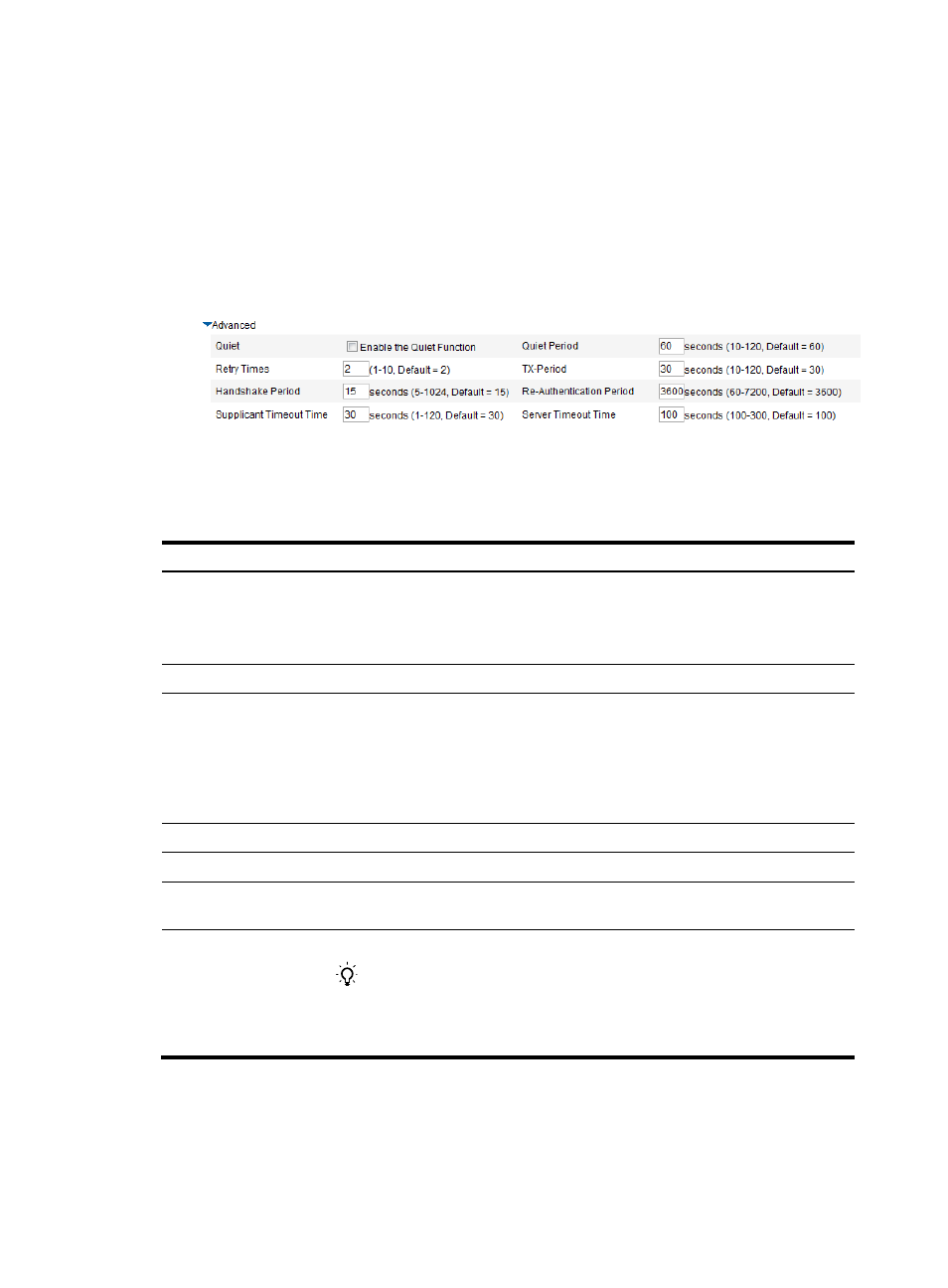H3C Technologies H3C WX3000E Series Wireless Switches User Manual
Page 542

521
When you configure EAP relay or EAP termination, consider the following factors:
•
Whether the RADIUS server supports EAP packets.
•
The authentication methods supported by the 802.1X client and the RADIUS server.
If the client is using only MD5-Challenge EAP authentication or the "username + password" EAP
authentication initiated by an H3C iNode 802.1X client, you can use both EAP termination and EAP relay.
To use EAP-TL, PEAP, or any other EAP authentication methods, you must use EAP relay.
4.
Click Advanced to expand the advanced 802.1X configuration area.
Figure 554 Advanced configuration
5.
Configure advanced 802.1X settings as described in
6.
Click Apply.
Table 167 Configuration items
Item Description
Quiet
Specify whether to enable the quiet timer.
The quiet timer enables the network access device to wait a period of time before it
can process any authentication request from a client that has failed an 802.1X
authentication.
Quiet Period
Set the value of the quiet timer.
Retry Times
Set the maximum number of authentication request attempts.
The network access device retransmits an authentication request if it receives no
response to the request it has sent to the client within a period of time (specified by
using the TX-Period option or the Supplicant Timeout Time option). The network
access device stops retransmitting the request, if it has made the maximum number of
request transmission attempts but still received no response.
TX-Period
Set the username request timeout timer.
Handshake Period
Set the handshake timer.
Re-Authentication
Period
Set the periodic online user re-authentication timer.
Supplicant Timeout
Time
Server Timeout Time
Set the client and server timeout timers.
TIP:
You can set the client timeout timer to a high value in a low-performance network,
and adjust the server timeout timer to adapt to the performance of different
authentication servers. In most cases, the default settings are sufficient.
For more information about 802.1X timers, see "
."
- H3C WX5500E Series Access Controllers H3C WX3500E Series Access Controllers H3C WX2500E Series Access Controllers H3C WX6000 Series Access Controllers H3C WX5000 Series Access Controllers H3C LSUM3WCMD0 Access Controller Module H3C LSUM1WCME0 Access Controller Module H3C LSRM1WCM2A1 Access Controller Module
